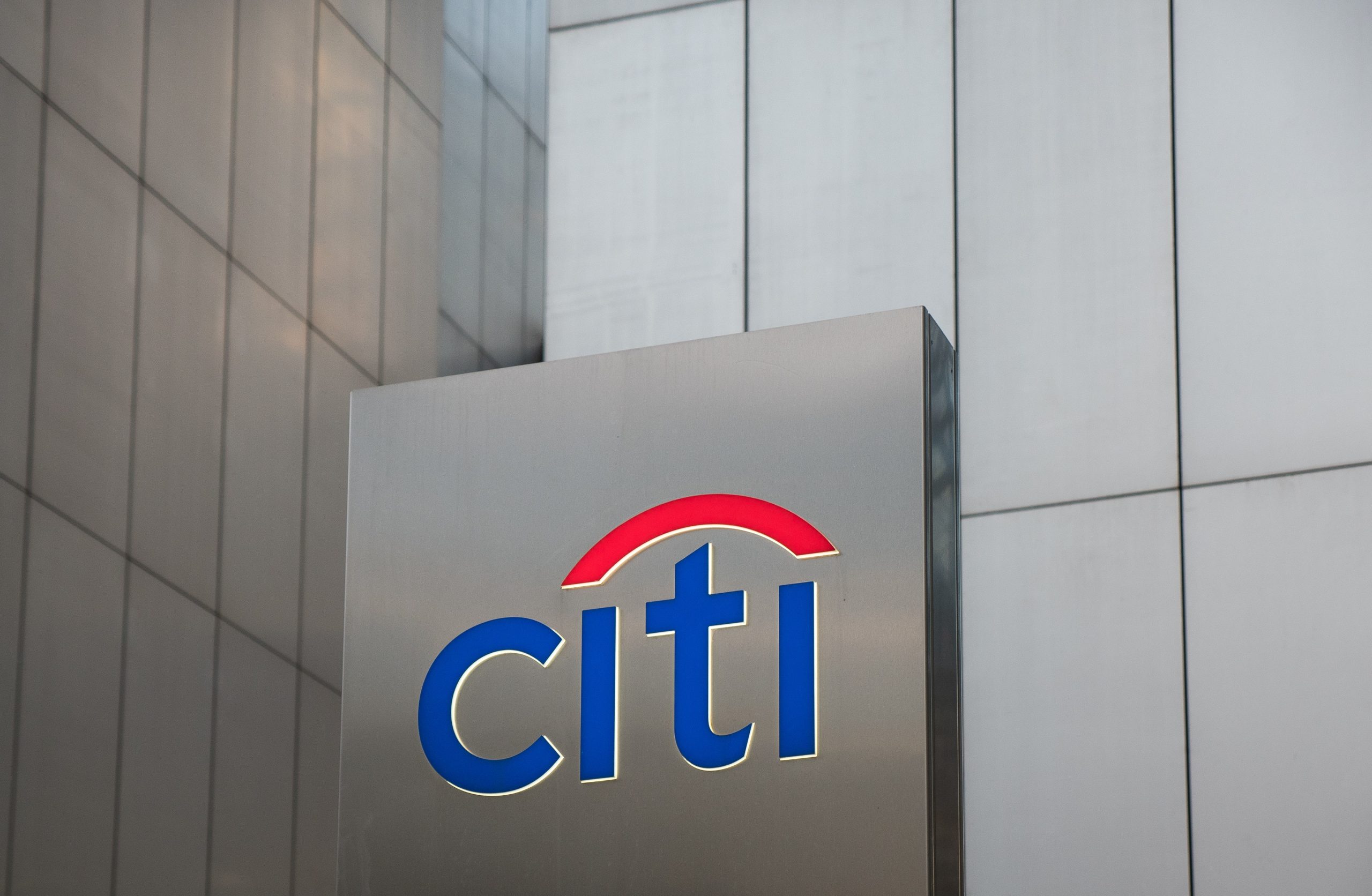This site uses cookies to provide you with a great user experience. By using BondbloX, you accept our use of cookies.
Bond Market News
53% of $ Bonds Traded Up in Oct; Amazon Demands $190mn from Future Retail; Aston Martin Raises $1bn at 10.5%
November 2, 2020


US equities again ended lower on Friday with the S&P down 1.2% while Nasdaq was lower ~2.5%. Most sectors were in the red while only financials and energy were marginally higher. US 10Y Treasury yields jumped for the second day, ~4bp wider despite the risk-off sentiment. This week sees multiple events – the presidential election with Biden leading in the polls, the Federal Reserve’s meeting (Wednesday) and culminates with the US labor market data (Friday). Market participants expect volatility to be high. US IG CDS spreads were wider by 0.3bp while HY was up 3bp. Europe and UK have taken the lockdown route to not risk a significant second wave of the virus. European equities were mixed with the DAX down 0.4%, CAC up 0.5% and FTSE flat. European CDS spreads were wider with the main and crossover up 1.3bp and 3.4bp. Asian equities have opened mixed today while Asia ex-Japan CDS spreads are flat.
New Bond Issues

Industrial Bank (Hong Kong) branch raised $450mn via a 3Y blue bond at a yield of 1.191%, 100bp over Treasuries and 45bp inside initial guidance of T+145bp area. The bonds are rated Baa2 and received orders over $2.15bn, ~4.8x issue size. Proceeds from the blue bonds will be used to finance and/or refinance eligible green assets which are water and/or marine related.
New Bonds Pipeline
- Central Nippon Expressway $ green bond
- Guangxi Investment Group $ bond
Rating Changes
Fitch Upgrades China Aoyuan Group to ‘BB’, Outlook Stable
Moody’s places Tiffany’s ratings, including Baa2 senior unsecured rating, on review for upgrade
Fitch Downgrades Nabors Industries to ‘C’ on Debt Exchange Announcement
Tullow Oil Outlook Revised To Stable From Negative By S&P On Asset Sale; ‘CCC+’ Ratings Affirmed
Correction: Fitch Places AIG Holding Co.’s IDR on Negative Watch; Affirms Subsidiaries’ Ratings
Fitch Affirms Romania at ‘BBB-‘; Outlook Negative
The Week That Was
Primary markets were active last week with the US seeing $31.6bn of deals priced, in-line with the week before. Issuance was lifted by high yield (HY) at $10.3bn while IG volumes were 14% lower at $21.4bn. HY saw a pick-up in issuance (up 50% over prior week) despite a PetSmart deal worth ~$2.35bn getting pulled amid market volatility and loose terms that could lead to asset stripping (Term of the day, explained below) of the company. LatAm issuance was muted at $350mn, down 68% from the week before. European G3 issuance totaled $12.1bn. Aston Martin’s junk bond issuance worth $1.1bn stood out as the carmaker priced the bonds much wider than initial guidance (more details below). Gulf dollar bond markets were relatively quiet with issuance worth $4.85bn as compared to $4.12bn in the previous week. Asian markets saw 19 new deals with overall volumes 48% lower than the week before at $6.55bn. Prominent names in Asia included Lenovo extending its curve from a 10Y issuance besides Kookmin Bank, CDB Financial Leasing and Poly Property. Across the three major rating agencies, there were 8 upgrades and 7 downgrades in total.

.png?width=1400&upscale=true&name=BEV%20Weekly%20Bottom%20Half%202%20Nov%20(1).png)
October 2020: Mixed Bag With 53% of Dollar Bonds Higher Led by HY
The month of October was mixed given the overall volatility across markets, particularly the last week. Overall, 53% of the dollar bonds in our universe delivered a positive price return (ex-coupon). High yield (HY) fared better compared to Investment grade with 60% of the HY bonds in our universe delivering positive price returns in October vs. 46% for investment grade bonds.

Click on the link below to read the full October bond market summary, including the top gainers & losers, issuance volume and largest deals.
Aston Martin Raises Over $1 Billion via Dollar Bond at 10.5%
Aston Martin raised $1.086bn via 5Y non-call 4Y bonds at a yield of 10.5%. The British carmaker priced the bonds a massive 250bp higher than the lower end of initial guidance of 8-9%, a rare occurrence in the primary bond markets. The bonds were issued by Aston Martin Capital Holdings and were rated Caa1 by Moody’s. Proceeds from the issuance along with $335mn second lien notes and £125mn ($160mn) of additional equity, will be used to:
- Redeem all existing senior debt
- Repay and cancel a government-guaranteed loan taken on account of the pandemic (CLBILS loan)
- Shore up on cash in the balance sheet
- General corporate purposes
The luxury carmaker had initially planned on a sterling and a dollar issuance but cancelled the former. This issuance comes after regional peers Jaguar Land Rover and Rolls Royce that raised money through junk bonds recently. The new bond was timed after the announcement of Mercedes increasing its stake to 20%, which pushed its dollar bonds higher by ~10% late last week. Aston has negative operating margins and the bond comes at a time when markets are volatile ahead of US elections, lockdowns and Brexit uncertainty. “Plus, with Brexit hovering on top of its head, I can see why investors would not touch it unless adequately rewarded”, said a strategist at SaxoBank. Aston Martin’s 6.5% dollar bond due 2022 was up 0.18 to 100.75, yielding 5.95% on the secondary markets.
For the full story, click here
Citigroup Issues Largest-Ever Private Sector Social Bond
Citigroup, the American bank said on Friday that it had issued the largest-ever private-sector social bond for affordable housing. The issuance consisted of a $2.5bn 4Y non-call 3Y fixed-to-floating rate bond. Proceeds from the bond will finance the construction, rehabilitation and preservation of quality affordable housing for low-and moderate-income populations in the US. This was part of a more than $1bn initiative announced earlier this year to fight racial inequality. The initiative helps support communities of color, including a push to increase homeownership among racial minorities. The bank partnered with women, veteran and minority-owned firms to execute the deal. The deal also follows its peers Morgan Stanley, which raised $1bn to fund affordable projects last month and Bank of America’s $2bn sustainability bond issuance in September aimed at providing more affordable finance to Black and Hispanic-Latino communities. Bloomberg reports that social bond issuance has topped $108bn, more than 5x last year’s numbers and significantly above historical numbers. Citi’s 1.676% bond due 2023 was flat at 101.66, yielding 0.74%.
For the full story, click here
Amazon-Future Retail Battles Heat Up With The Former Demanding Its Investment Back
The battle between Amazon and Future Retail heated up over the weekend with Amazon demanding a repayment of its 2019 investment worth INR 14.1bn ($190mn) in a Future Group company. The repayment is part of its Singapore arbitration proceedings and comes after Amazon won an interim order in Singapore on October 25. The arbitration is to block Reliance’s acquisition of Future Retail as the combined entity would compete directly with Amazon in the Indian retail space. Amazon, which indirectly owns 7.3% in Future Retail, also complained to the Indian market regulator that Future Retail misled its shareholders in stating that it was complying with its contractual obligations. Future Retail responded with a rather lengthy response filed with the Singapore stock exchange stating that the Singapore arbitrator’s order is not enforceable under Indian law and not binding on the company. Further, it added that in the event that Amazon’s claims are successful, the repayment would be borne by the promoters with no financial impact on the company. Future Retail’s 5.6% dollar bonds due 2025 are trading at 69 cents on the dollar, yielding 16% on the secondary markets.
Tsinghua’s Local & Dollar Bonds Fall After Trading Halt Lifted
Tsinghua Unigroup’s local currency and dollar bonds fell further on Friday after a trading halt imposed by the Shanghai stock exchange was lifted on Friday. The bonds had fallen on Thursday after the issuer announced that it will not be redeeming its CNY 1bn ($150mn) perpetual bonds. It’s yuan-denominated bonds due 2023 fell 25% to a low of CNY 36.1 while its dollar bonds due January 2021 fell 7% to 60.4 cents on the dollar. Yang Yewei, an analyst from Guosheng Securities Co. said, “The company’s decision not to call back the perpetual bond shows its liquidity crunch.”
Bloomberg reported that Tsinghua has wired funds to the clearing house to redeem its CNY 636mn ($95mn) 6% puttable bonds that were issued in 2017 and puttable at the end of the third year, according to people familiar with the matter. The company did not comment on this.
Term of the Day
Asset Stripping
Asset stripping refers to the practice of acquiring a company, only to later sell its assets separately. The idea is that the company’s individual assets can be sold at a higher price than the company itself. General targets are those companies that are selling for less than book value and are not in the best financial position. It is considered to be a corporate raider or activist strategy.
Petsmart’s junk bond deal was cancelled last week amid market volatility and loose terms that could lead to asset stripping of the company. For context, PE firm BC Partners had acquired Petsmart in 2015 through a $9bn leveraged buyout (LBO) while Petsmart acquired Chewy, an unprofitable but fast growing company two years later for $3bn. Post the Chewy acquisition, Petsmart piled on debt, which affected its financial position. The cancellation of the bond issuance sources say, highlighted loose documentation that would have given BC Partners the flexibility to engage in asset stripping that essentially moves assets out of lenders’ reach, making it unfavorable for bondholders.
Talking Heads
On the views of top money managers are trading the U.S.-China superpower clash
Mark Mobius, partner and co-founder at Mobius Capital Partners
“We are not getting out of China because there is so much there that is not related to the U.S.-China trade battle. There are many companies in China that are dependent on what is happening locally and not on U.S. trade. So we are focusing on those rather than companies that will be hurt.”
Andy Rothman, investment strategist at Matthews Asia and a former U.S. diplomat in Beijing.
“Most people are unaware that the Chinese economy has evolved into one that is driven by domestic demand, and not by manufacturing or exports.”
James McCann, senior global economist at Aberdeen Standard Investments
“All signs at present point toward a further deterioration in U.S.-China relations… Our worst-case scenario is one in which we see severe tit-for-tat escalations in tension across a wide range of issues including: trade and tariffs, technology, Hong Kong, and the South China Sea. This would clearly be disruptive for economic activity in the U.S., China and beyond. It would severely dampen consumer and corporate confidence and weigh on market sentiment.”
John Lau, head of Asia equities at SEI Investments
“It shouldn’t be ‘Is China losing or is China winning?’ That is not the right question to ask. The right question is what kind of companies or industries would be the winners going forward in the decoupling scenario.”
On yield curve steepest since June as U.S. stocks sell off
Ellis Phifer, market strategist at Raymond James
“It’s not something we’d normally see, especially after last week when stocks sold off and Treasuries rallied. The bond market is actually seeing something no one else is: It is pricing in not if but when stimulus comes.”
On Fortress Fails to Sell Record Bond Deal for Las Vegas Rail
Fiona Ma, California treasurer
“Unfortunately there is not a lot of liquidity in the market and a lot of economic uncertainty at this moment. The project is postponed until market liquidity improves.”
On Sri Lanka debt tumbles from best to worst in Asia on virus
A.S. Thiyaga Rajan, senior managing director in Singapore at Aquarius Investment Advisors Pte.
“Emerging markets are more vulnerable than developed countries to the impact of Covid-19. Sri Lanka, being highly dependent on tourism for its economic growth, is one such nation extremely susceptible to the pandemic’s shock.”
Top Gainers & Losers – 2-Nov-20*

Other Stories
Go back to Latest bond Market News
Related Posts:








